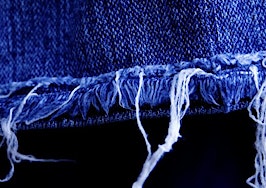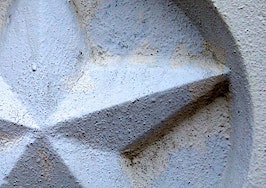- CoreLogic said last week that distressed sales in June fell 2.3 percentage points from a year earlier and 0.9 percentage point from May to 9.4 percent.
- The total number of mortgaged residential properties with equity at the end of 2Q was approximately 45.9 million, or 91 percent of all mortgaged properties; nationwide, borrower equity increased year over year by $691 billion.
- Approximately 9 million homes have less than 20 percent equity and are considered “underequitied."
A week after reporting that short sales and sales of real estate owned (REO) properties this June fell to their lowest June rates since 2007, CoreLogic today released a new analysis showing that 759,000 properties regained equity in the second quarter.
The property analytics provider said last week that distressed sales in June fell 2.3 percentage points from a year earlier and 0.9 percentage point from May to 9.4 percent, the lowest monthly share reported in the month of June since 2007, when the share was 4.9 percent.
CoreLogic’s quarterly equity report is now in, and the news is even more positive for homeowners who may be struggling to make their mortgage payments.
According to the report, the total number of mortgaged residential properties with equity at the end of the second quarter was approximately 45.9 million, or 91 percent of all mortgaged properties, and nationwide, borrower equity increased year over year by $691 billion.

The number of homeowners who are underwater, or owe more on their mortgages than their properties are worth, fell 1.5 percentage points quarter over quarter to 4.4 million homes, or 8.7 percent of all mortgaged properties.
That decrease fell even further compared to the negative equity rates reported in the same period of last year, when CoreLogic said 5.4 million homes, or 10.9 percent of all properties, were underwater.
“Home price appreciation and foreclosure completions both reduce the number of homeowners with negative equity, the latter because most homeowners who lose homes through foreclosure had some level of negative equity,” said Frank Nothaft, chief economist for CoreLogic.
“Between June 2014 and June 2015, the CoreLogic national Home Price Index (HPI) rose 5.6 percent, and we reported the number of homes completing foreclosure proceedings exceeded one-half million. Both of these factors helped reduce the number of homeowners with negative equity by 1 million over the year ending in June.”
Underwater homeowners had $309.5 billion in aggregate negative equity value at the end of the second quarter, falling approximately $28.5 billion from $338 billion in the first quarter and 11.6 percent from $350 billion year over year.
Approximately 9 million homes have less than 20 percent equity and are considered “underequitied,” and those homeowners may have a difficult time refinancing their homes or obtaining new financing to sell and buy another home due to underwriting constraints.
Another 1.1 million homes have less than 5 percent equity and are considered “near-negative-equitied,” and at risk of moving into negative equity if home prices continue to fall.
CoreLogic President and CEO Anand Nallathambi said the negative equity epidemic is likely lifting because of steadily increasing home prices in the past three years, “which reflects increasing money flows into housing and a lack of housing stock in many markets.”
CoreLogic predicts home prices to rise an additional 4.7 percent over the next year, and if this happens, 800,000 homeowners could regain positive equity by July 2016. – CoreLogic President and CEO Anand Nallathambi
The bulk of positive equity for mortgaged properties is concentrated at the high end of the housing market, CoreLogic said. For example, 95 percent of homes valued at greater than $200,000 have equity, compared with 87 percent of homes valued at less than $200,000.
“CoreLogic predicts home prices to rise an additional 4.7 percent over the next year, and if this happens, 800,000 homeowners could regain positive equity by July 2016,” Nallathambi said.
States with the highest percentage of homes with positive equity are:
- Texas (97.9 percent of all mortgaged properties)
- Alaska (97.6 percent)
- Hawaii (97.5 percent)
- Montana (97.2 percent)
- Colorado (96.7 percent)
States that are struggling with the most with negative equity are:
- Nevada (20.6 percent of all mortgaged properties)
- Florida (18.5 percent)
- Arizona (15.4 percent)
- Rhode Island (13.8 percent)
- Illinois (13.1 percent)
Combined, these five states accounted for 31.7 percent of negative equity in the country.







